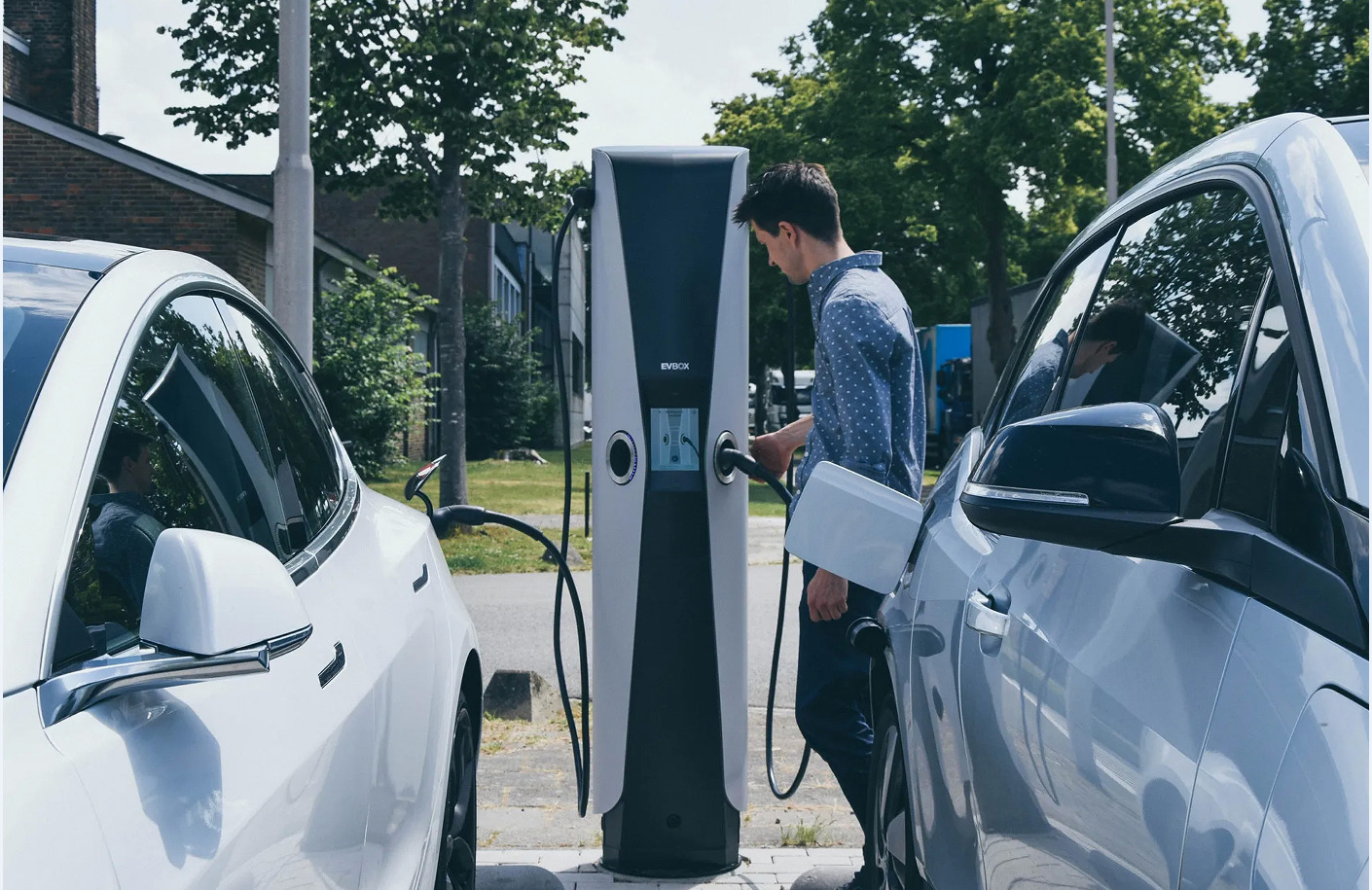Introduction
Overview of the Growing Adoption of Electric Vehicles (EVs) in Fleet Management
With the increasing focus on sustainability and the need to reduce carbon emissions, electric vehicles (EVs) have gained significant traction in fleet management. More and more companies recognize the environmental and cost-saving benefits of adopting EVs as part of their transportation solutions. The shift towards EVs drives the desire to contribute to a greener future and meet sustainability goals. This growing adoption of EVs in fleet management reflects a shift towards more sustainable and efficient transportation options.
Importance of Efficient Fleet Charging Solutions for Optimal Operations
Efficient fleet charging solutions play a crucial role in ensuring smooth operations and maximizing the potential of electric vehicles. Fleet managers understand the significance of maintaining optimal charging infrastructure to minimize downtime and maximize the utilization of EVs. By implementing efficient fleet charging solutions, companies can ensure that their electric vehicles are readily available, enhancing overall operational efficiency and productivity. It is imperative to establish reliable and robust charging systems to meet the demands of a growing EV fleet and avoid disruptions in daily operations.
Introduction to the Role of EV Charging Cables Manufacturers in Maximizing Charging Efficiency
EV charging cable manufacturers play a pivotal role in maximizing the efficiency of fleet charging solutions. These manufacturers are responsible for designing and producing high-quality charging cables that ensure safe and efficient power transfer between charging stations and electric vehicles. Their expertise lies in developing cables that provide:
- Fast charging capabilities.
- Compatibility with various EV models.
- Robustness to withstand rigorous usage.
By partnering with reputable EV charging cable manufacturers, fleet managers can maximize the charging efficiency of their EV fleet, ultimately contributing to improved overall fleet operations.
Understanding Fleet Charging Challenges
The Unique Challenges Faced in Managing EV Fleets’ Charger Businesses
Managing the charging needs of electric vehicle (EV) fleets comes with unique challenges. Unlike traditional vehicles, EV fleets depend on charging infrastructure to sustain operations. The primary challenge lies in ensuring an adequate number of charging points at convenient locations to meet the demands of the fleet. Moreover, charging speed and compatibility with different EV models further complicate the charging process. Effectively addressing these challenges is crucial to optimize the performance and productivity of EV fleets.
Discussing the Impact of Inefficient Charging Products on Fleet Performance and Costs
Inefficient charging practices can significantly impact the performance and costs associated with operating EV fleets. When charging infrastructure is inadequate or poorly managed, fleet operators may experience delays and downtime, reducing productivity. Additionally, inefficient charging can increase energy consumption and electricity bills. Suboptimal charging practices can also contribute to premature battery degradation, reducing the overall lifespan of EVs within the fleet. Recognizing the impact of inefficient charging on fleet performance and costs is essential for devising effective charging strategies.
Identifying the Limitations of Traditional Charging Infrastructure
Traditional charging infrastructure presents certain limitations when it comes to managing the charging needs of EV fleets. The availability of charging stations, especially in remote or less populated areas, can be a significant constraint. This scarcity hinders the expansion and utilization of EV fleets in such regions. Furthermore, the charging speed of conventional stations may be less optimal, leading to longer charging durations and operational delays. As the demand for EV fleets grows, it becomes crucial to address these limitations and explore innovative solutions to ensure efficient and widespread charging infrastructure.
The Significance Of EV Charging Cables
Explaining the Role of EV Charging Cables in Facilitating Charging Processes
EV charging cables play a crucial role in facilitating the charging processes for electric vehicles. These cables establish the connection between the charging station and the EV, enabling the flow of electricity. They are the vital link that transfers power from the grid to the vehicle’s battery. These cables are necessary for the charging process to be possible. It is essential to understand the significance of these cables in ensuring efficient and reliable charging for electric vehicles.
Discussing the Importance of Quality and Compatibility in Charging Cable Selection
Quality and compatibility are of utmost importance when selecting charging cables for EVs. High-quality cables ensure safe and reliable charging, minimizing the risk of malfunctions or accidents. Additionally, compatibility with the specific charging standards and connectors used by different EV models is crucial for seamless charging experiences. Choosing a suitable charging cable that meets the quality standards and is compatible with the intended EV models is essential to ensure efficient and hassle-free charging operations.
Overview of Different Types of Charging Cables and Their Features
Various types of charging cables are available for EVs, each with unique features. Common types include Type 1 (J1772), Type 2 (Mennekes), and CCS (Combined Charging System) cables. Type 1 cables typically use for charging older EV models. In contrast, Type 2 and CCS cables use commonly in Europe and North America. These cables may differ in charging speed, connector design, and compatibility with different EV models. Understanding the characteristics and capabilities of different charging cable types helps select the most suitable option for specific charging requirements.
Selecting The Right EV Charging Cables Manufacturer
Factors to Consider When Choosing an Ev Charging Cables Manufacturer
When choosing an EV charging cable manufacturer, one should consider several factors:
- Assessing the quality and durability of the cables they produce is important. High-quality cables are essential for reliable and long-lasting charging solutions.
- Compatibility with different EV models and charging stations is crucial to ensure seamless charging experiences. Manufacturers that offer a wide range of compatible cables provide flexibility for various charging requirements.
- Safety is vital to ensure the cables meet industry standards and prioritize user safety.
Evaluating the Reputation and Track Record of Potential Manufacturers
Evaluating the reputation and track record of potential EV charging cable manufacturers is an essential step in the selection process. Researching their past performance and customer reviews provides valuable insights into their reliability and satisfaction. Established manufacturers with a proven track record often instill confidence in their products. Additionally, seeking recommendations from industry experts and experienced EV fleet operators can further validate the manufacturer’s reputation and credibility.
Importance of Considering Future Scalability and Charging Infrastructure Developments
When selecting an EV charging cables manufacturer, it is essential to consider future scalability and developments in charging infrastructure. As the demand for EVs and charging stations increases, choosing a manufacturer that can adapt to evolving needs is crucial. Manufacturers that actively invest in research and development and offer future-proof solutions ensure compatibility with upcoming charging standards and technologies. Considering the long-term scalability and alignment with charging infrastructure developments can save costs and support efficient fleet operations.
Key Features Of Efficient Fleet Charging Solutions
Discussing Advanced Features and Technologies Offered by Reputable Charging Cables Manufacturers
Reputable charging cable manufacturers offer a range of advanced features and technologies to enhance fleet charging solutions. These features may include innovative charging capabilities, enabling intelligent scheduling and charging session optimization. Additionally, manufacturers may provide integrated communication systems that allow seamless data exchange between the charging infrastructure and fleet management systems. Such integration enhances efficiency and enables real-time monitoring and control. By partnering with manufacturers that offer these advanced features, fleet operators can optimize their charging processes and maximize productivity.
The Benefits of Fast Charging Capabilities and Enhanced Power Delivery
Fast charging capabilities and enhanced power delivery are vital benefits of efficient fleet charging solutions. Manufacturers prioritizing high-speed charging technologies allow for reduced charging times, minimizing downtime for EV fleets. Moreover, enhanced power delivery ensures a consistent and reliable charging experience, supporting the fleet’s operational requirements. With faster charging and improved power delivery, fleets can optimize their daily operations and reduce overall charging costs.
Exploring Intelligent Charging Solutions and Integration with Fleet Management Systems
Intelligent charging solutions integrated with fleet management systems provide added efficiency and control. These solutions enable intelligent charging scheduling based on fleet demand and energy availability. Fleet management systems’ integration allows seamless coordination between charging processes and fleet operations. Fleet managers can monitor charging status, manage priorities, and access real-time data for better decision-making. Exploring these intelligent charging solutions and their integration capabilities empowers fleet operators to optimize charging operations and streamline overall fleet management processes.
Best Practices For Maximizing The Power Of EV Charging Cables Manufacturer
Providing Recommendations for Fleet Managers to Maximize the Benefits of Efficient Charging Solutions
Fleet managers should follow a set of best practices to maximize the benefits of efficient charging solutions. Firstly, selecting a reputable EV charging cable manufacturer that offers high-quality and reliable products is crucial. Regular cable maintenance and adhering to proper handling guidelines are essential to ensure longevity and optimal performance. Fleet managers should also consider effective fleet charging infrastructure planning and optimization strategies, such as determining the optimal number and placement of charging stations. By implementing these best practices, fleet managers can maximize the power of EV charging cables and optimize their charging operations.
Proper Cable Maintenance and Handling Guidelines
Proper maintenance and handling of EV charging cables are essential for longevity and performance. Fleet managers should regularly inspect cables for wear or damage and promptly replace faulty components. Following the manufacturer’s guidelines for cleaning and storing the cables is essential to prevent unnecessary wear and tear. Furthermore, proper handling techniques, such as avoiding excessive bending or pulling, help prevent cable damage and ensure reliable charging experiences. By adhering to these maintenance and handling guidelines, fleet managers can maximize the lifespan and performance of their EV charging cables.
Strategies for Effective Fleet Charging Infrastructure Planning and Optimization
Effective fleet charging infrastructure planning and optimization strategies are crucial for efficient charging operations. Fleet managers should assess their charging needs and consider the number of vehicles, charging demands, and available electrical capacity. Strategically planning the placement of charging stations ensures convenient access for the fleet while optimizing energy distribution. Additionally, considering future scalability and growth projections enables fleet managers to accommodate expanding charging requirements. Implementing innovative charging solutions and integrating them with fleet management systems allows for intelligent scheduling and optimization of charging sessions. By employing these strategies, fleet managers can maximize the effectiveness of their charging infrastructure and optimize fleet operations.
Future Trends In EV Charging Solutions
Emerging Technologies in Ev Charging Cables
The future of fleet charging holds exciting prospects with emerging technologies in EV charging cables. Manufacturers develop cables with higher power capacities, improved efficiency, and enhanced durability. These advancements enable faster charging and greater flexibility for EV fleets. Staying updated with developments in charging cables allows fleet managers to optimize charging in the evolving electric vehicle industry.
Potential of Wireless Charging Service and Faster Speeds
Wireless charging offers a promising future for fleet charging. It eliminates physical cables, providing convenient charging experiences. As the technology matures, broader adoption and integration into fleet charging are expected. Advancements in charging speeds reduce times, improving fleet productivity and the charging experience for EV operators.
Developments in Charging Infrastructure and Fleet Remote Management
The advancements in charging infrastructure will have a significant impact on fleet management. With EV adoption, the focus is on expanding charging networks and capacity. Ultra-fast charging stations with higher power outputs deploy. Advancements in smart grid technology and energy management optimize charging. These developments provide fleet operators with control, efficient energy use, and integration with management systems. Staying informed allows fleet managers to adapt strategies and benefit from the evolving infrastructure landscape.
Conclusion
Recap of the Importance of Efficient Fleet Charging Solutions
Efficient fleet charging solutions are crucial in successfully operating electric vehicle (EV) fleets. They contribute to improved fleet performance, reduced operational costs, and achieving sustainability goals. Fleet managers can enhance productivity, minimize downtime, and support their long-term success by optimizing charging processes and integrating high-quality charging solutions.
Emphasizing the Role of Ev Charging Cables Manufacturers in Maximizing Charging Efficiency
EV charging cable manufacturers play a vital role in maximizing charging efficiency. They provide the essential components that enable power transfer from the grid to the EVs, ensuring a reliable and safe charging experience. By partnering with reputable manufacturers, fleet managers can access high-quality charging cables compatible with EV models and charging stations. This compatibility, combined with advanced features and technologies offered by manufacturers, empowers fleet managers to optimize charging operations and streamline their fleet management processes.
Encouraging Fleet Managers to Prioritize High-quality Charging Solutions for Long-term Success
In conclusion, prioritizing high-quality charging solutions is paramount for the long-term success of EV fleets. By selecting reliable EV charging cable manufacturers and implementing efficient charging practices, fleet managers can maximize charging efficiency, minimize operational costs, and enhance fleet performance. It is crucial to recognize the significance of efficient fleet charging and invest in high-quality charging solutions to ensure seamless operations and future scalability. By doing so, fleet managers can position their fleets for sustainable growth and contribute to the transition toward a greener and more sustainable transportation ecosystem.
Post time: Nov-09-2023

 Portable EV Charger
Portable EV Charger Home EV Wallbox
Home EV Wallbox DC Charger Station
DC Charger Station EV Charging Module
EV Charging Module NACS&CCS1&CCS2
NACS&CCS1&CCS2 EV Accessories
EV Accessories


